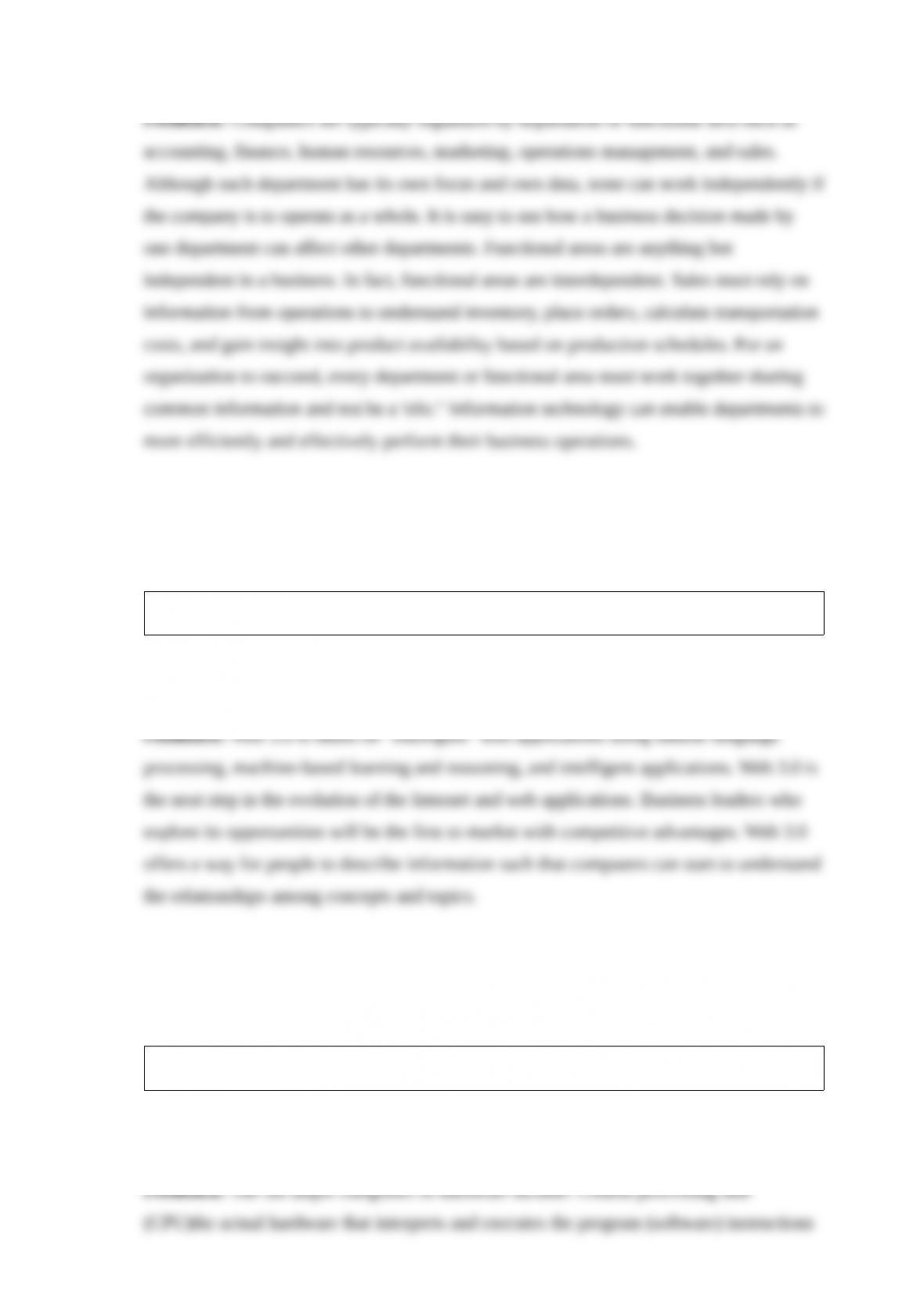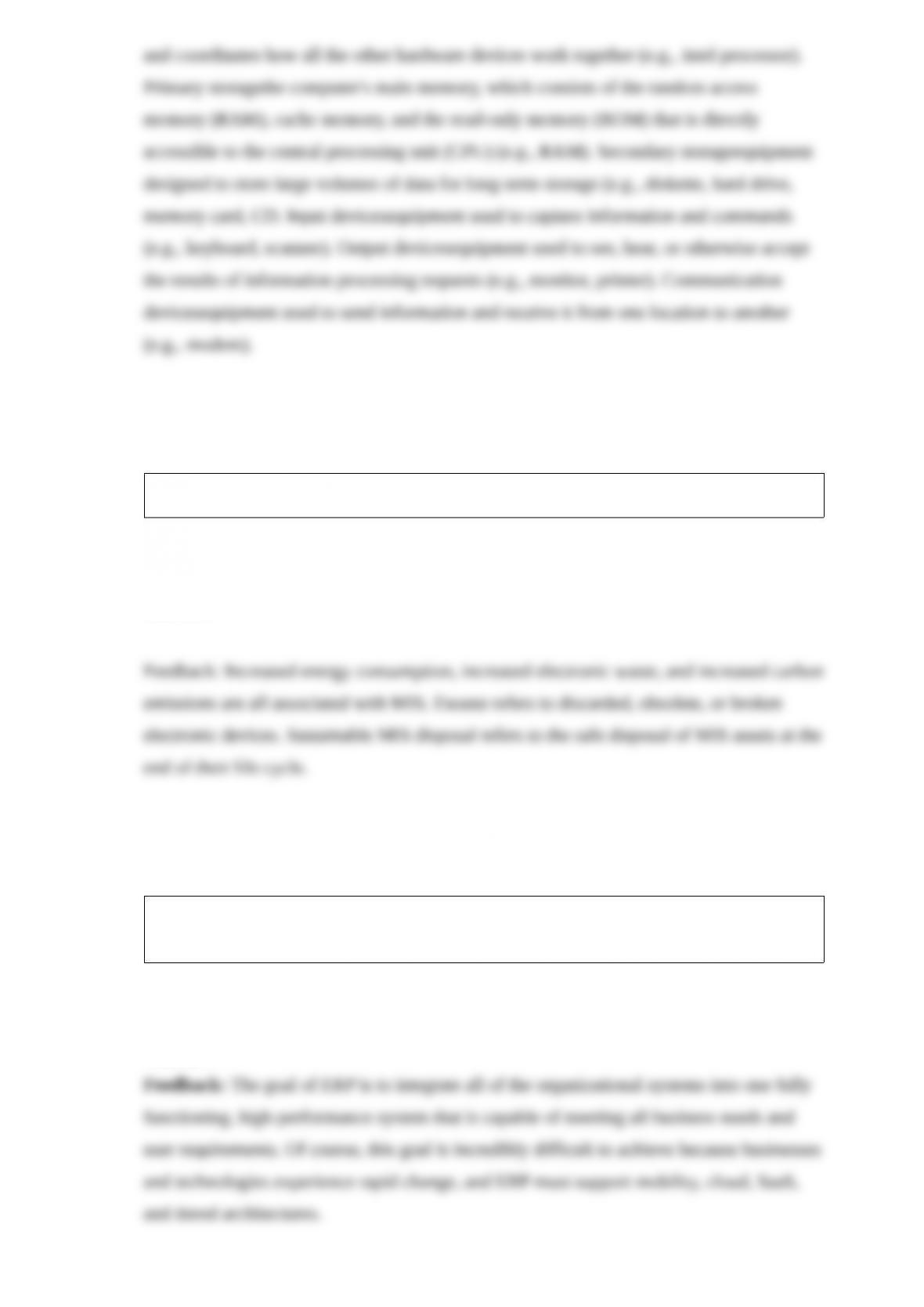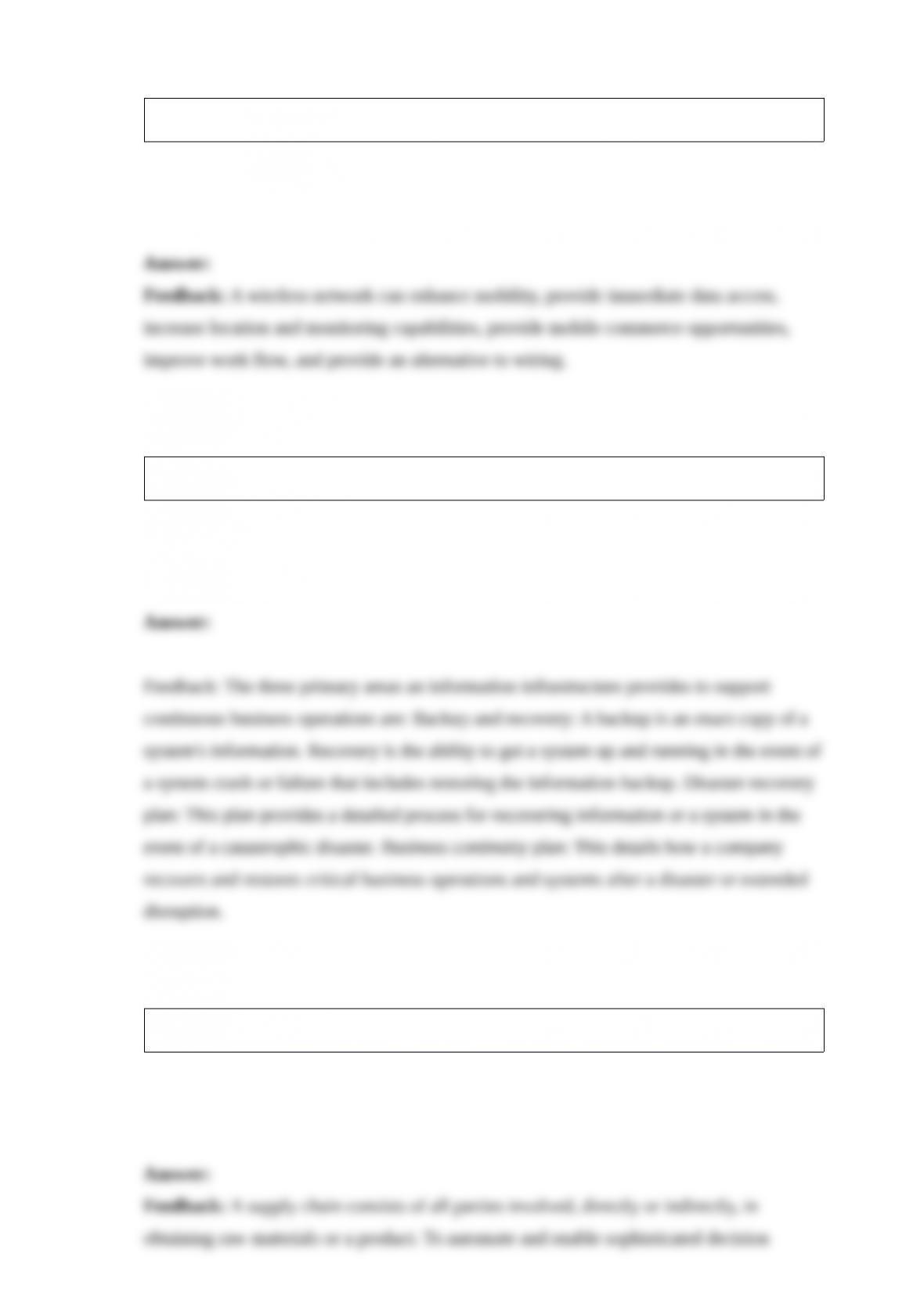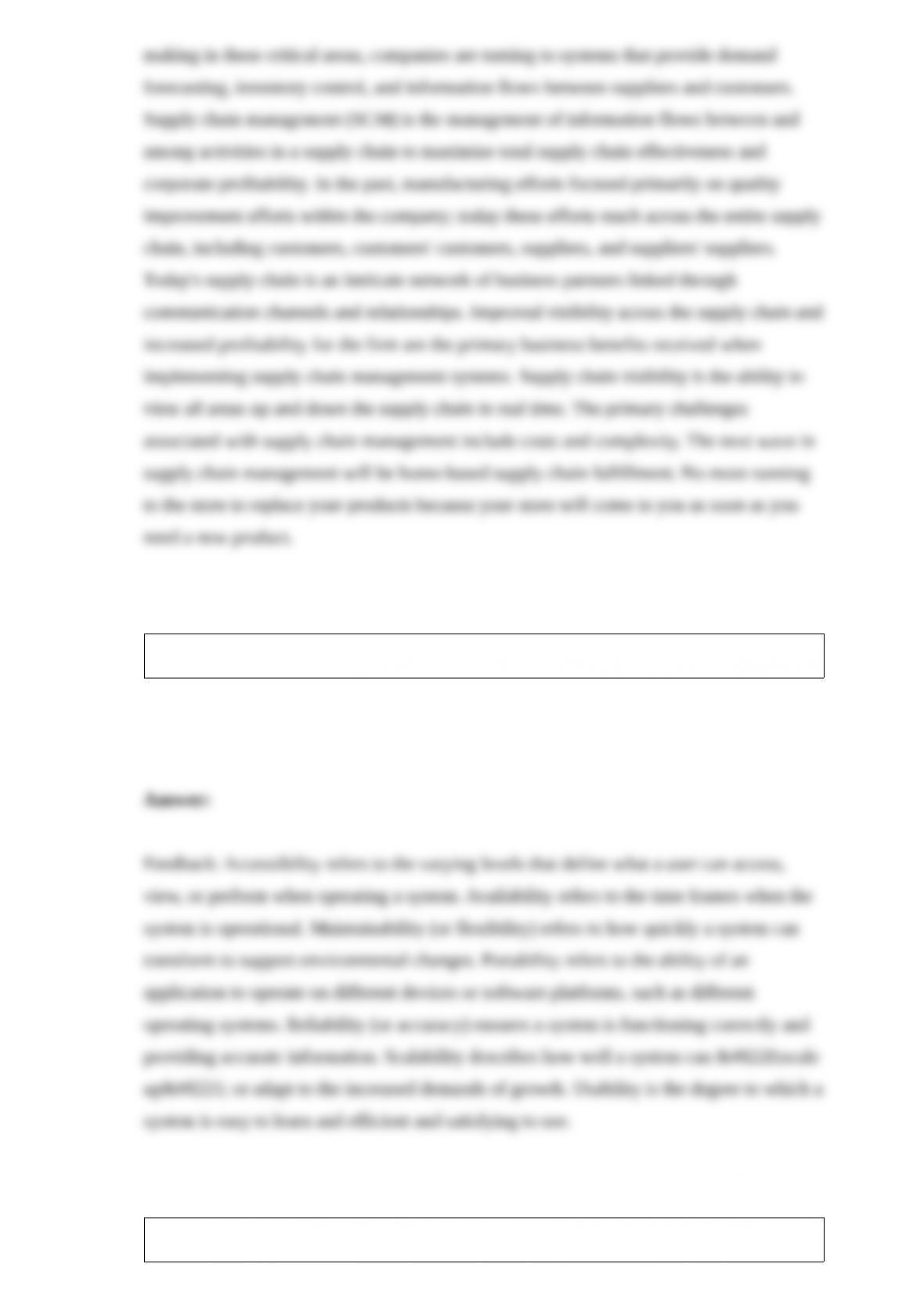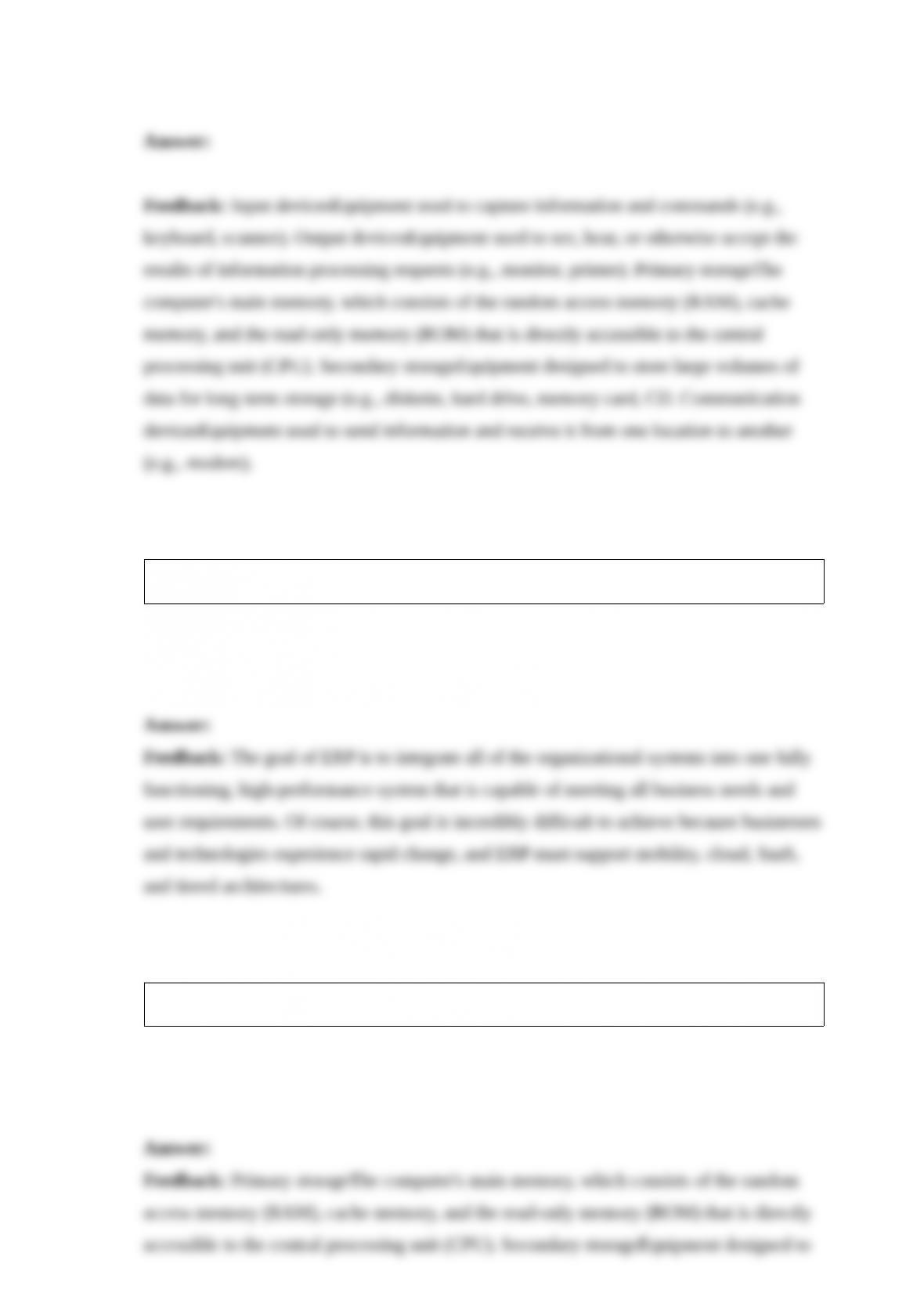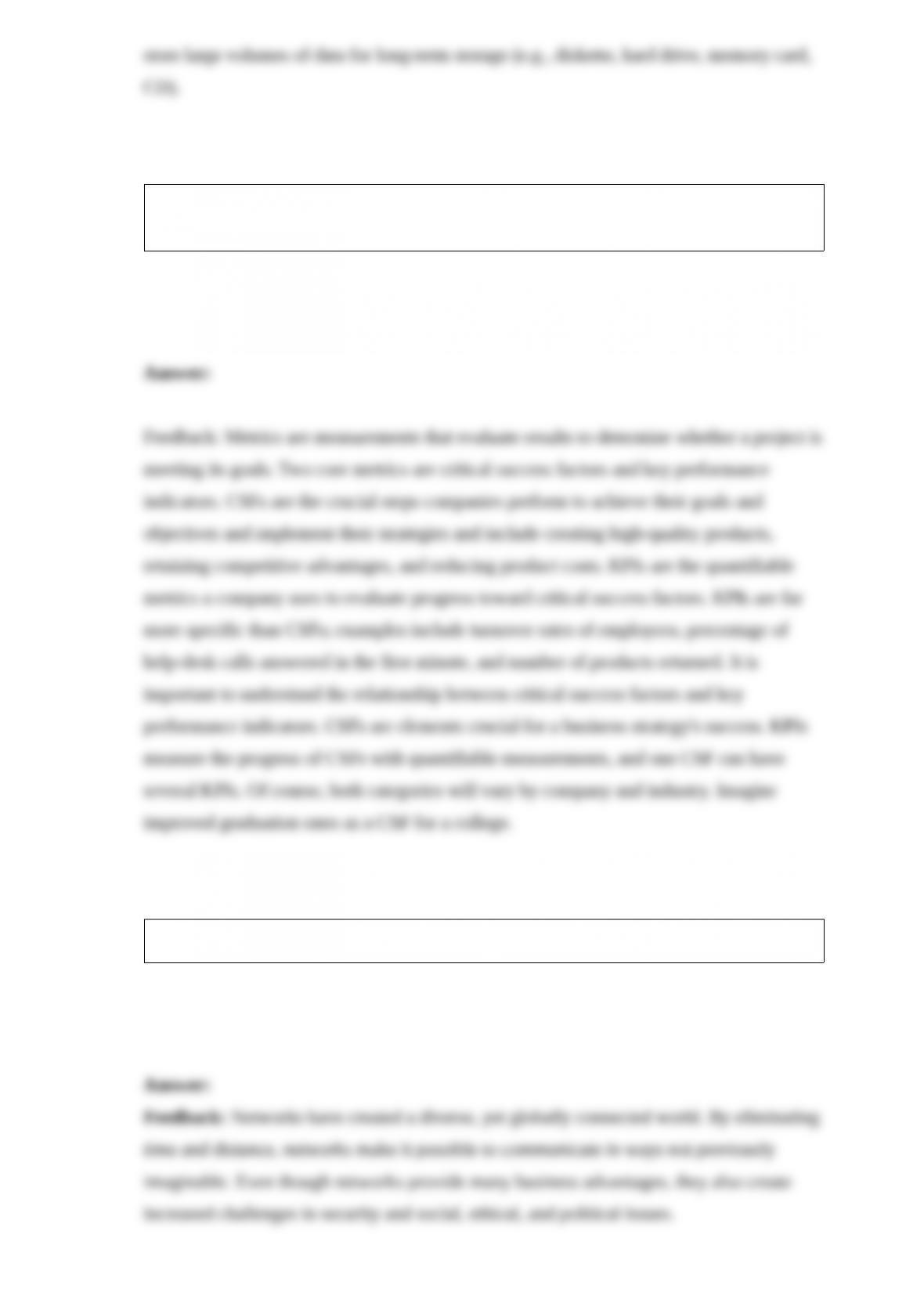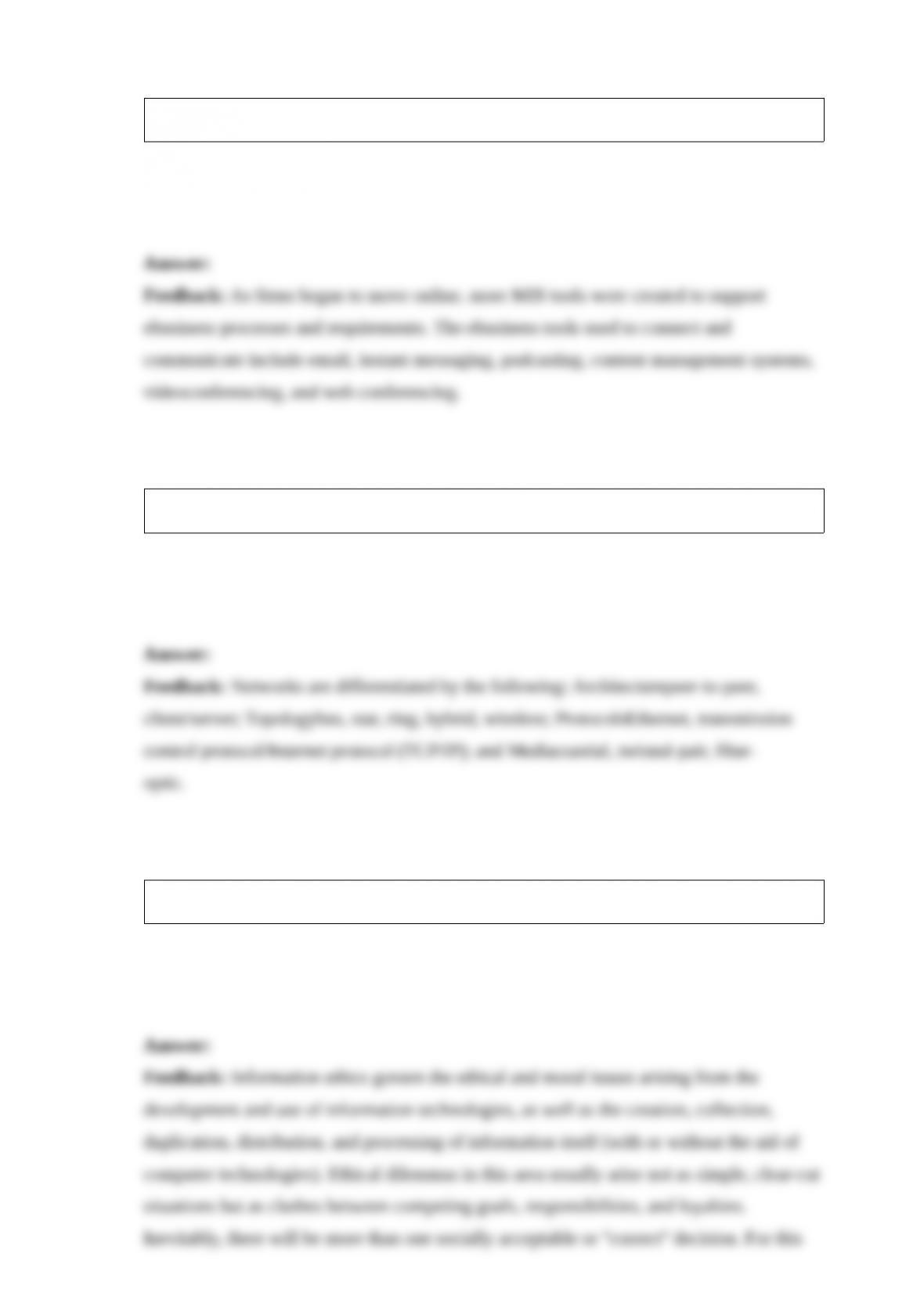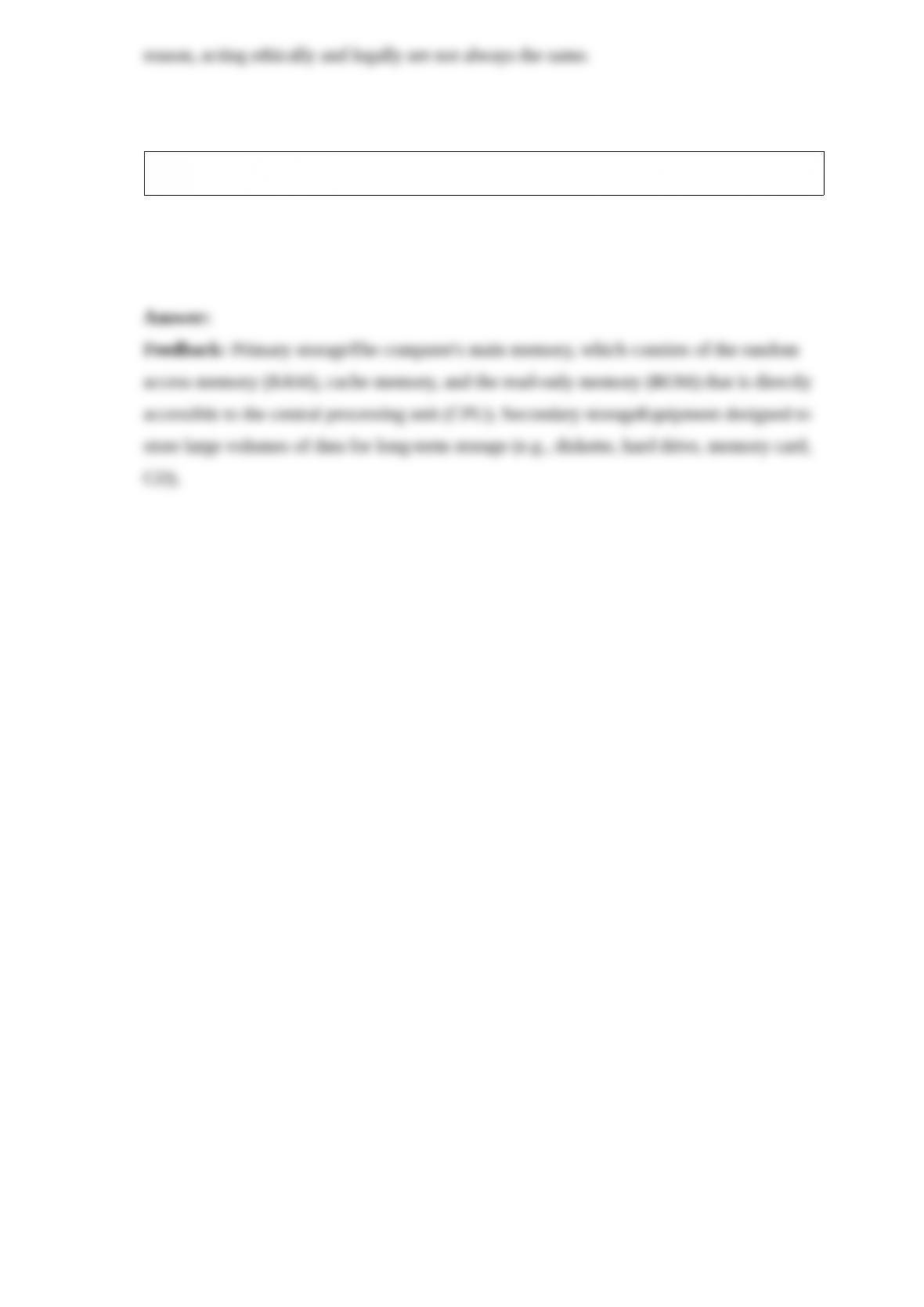What are the primary business benefits of an ERP system?
A. sales forecasts, sales strategies, and marketing campaigns
B. market demand, resource and capacity constraints, and real-time scheduling
C. forecasting, planning, purchasing, material management, warehousing, inventory,
and distribution
D. All of these are correct.
Which of the choices below represents the definition of information governance?
A. the act of conforming, acquiescing, or yielding information
B.a method or system of government for information management or control
C. the category of computer security that addresses the protection of data from
unauthorized disclosure and confirmation of data source authenticity
D. examines the organizational resource of information and regulates its definitions,
uses, values, and distribution, ensuring that it has the types of data/information required
to function and grow effectively






























